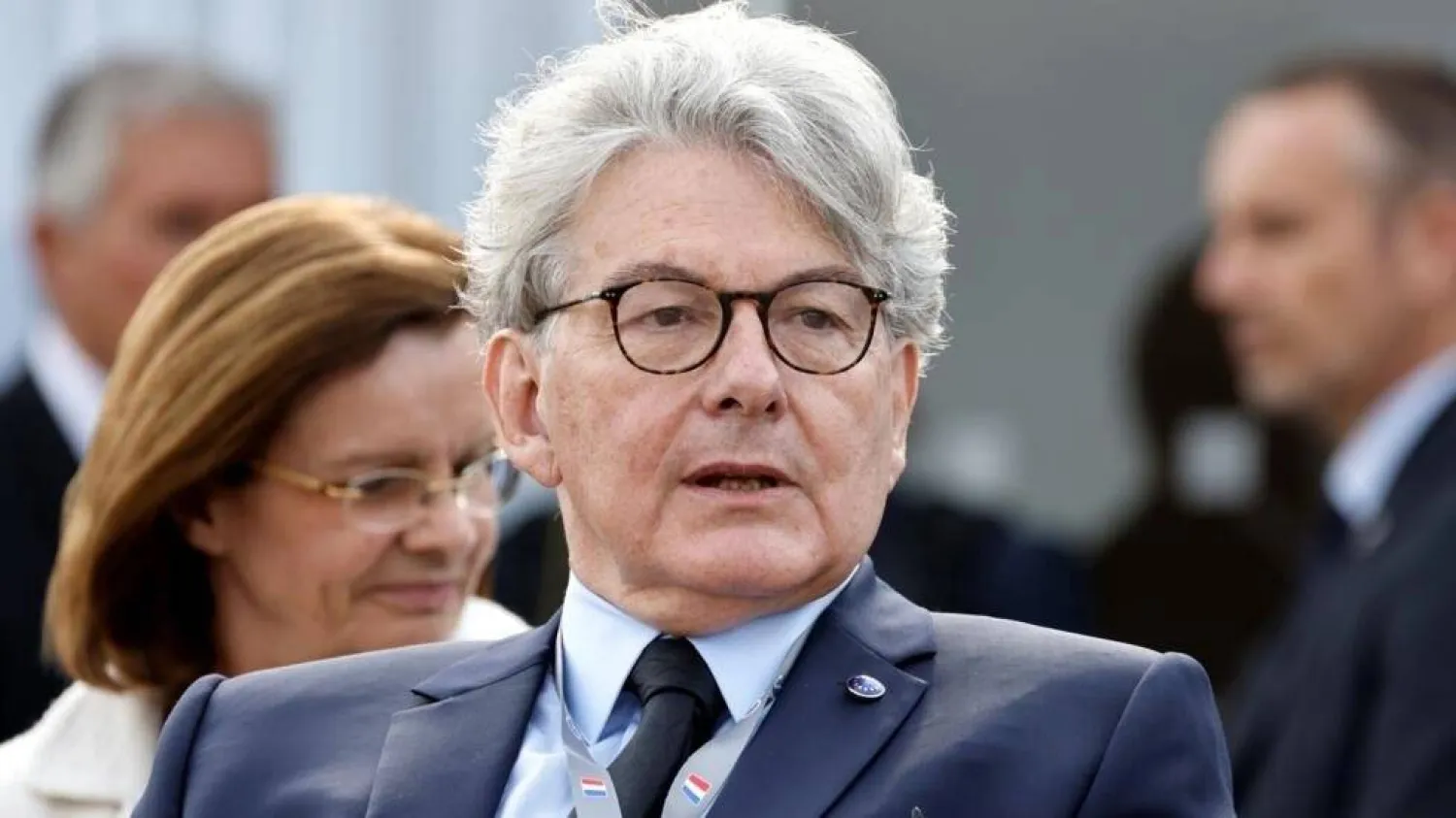The EU commissioner in charge of enforcing Europe's new landmark rules on online content is heading to San Francisco on Thursday to ensure that the big platforms are ready.
The two-day visit by Thierry Breton comes just weeks before the European Union's Digital Service Act (DSA) comes into full force for the world's biggest platforms, including Facebook and Instagram, both owned by Meta, as well as TikTok and Twitter.
Breton will meet with Meta's Mark Zuckerberg and Twitter owner Elon Musk, who took over the highly influential platform late last year.
All eyes are on Musk, who since taking ownership of Twitter has, sometimes abruptly, modified many rules about what language is allowed on the site, even if it is found offensive or delivers hate and misinformation -- in direct opposition to the EU's new rules.
Breton also plans to meet in California with Sam Altman, the chief executive of OpenAI, the tech company behind ChatGPT as well the boss of AI chipmaker Nvidia.
EU lawmakers are in final negotiations to complete the AI Act, another proposed European law with the potential for imposing huge influence on US big tech companies.
"I am the enforcer. I represent the law, which is the will of the state and the people," Breton said to Politico last month when announcing the trip.
In an effort to reassure the Europeans, Musk has accepted that Twitter undergoes a DSA "stress test" to see if his platform will reach the EU's standards, though the results will not be public.
On a visit to Paris last week, Musk said he had every intention of meeting the demands of the DSA.
But with Twitter's payroll cut to the bone and content moderation teams decimated, observers doubt whether Musk is in a position to stand by his commitment.
'Easy target'
The DSA is one of the most ambitious legislations on controlling online content since the advent of social media, putting major obligations on how the world’s biggest platforms deal with the free flow of speech.
Like the EU's General Data Protection Regulation, the DSA is expected to become a global benchmark as governments worldwide struggle to find ways to rein in the excesses of social media.
To meet the new rules, Twitter, Meta, TikTok and other platforms will have to invest heavily on building compliance teams just at a time when big tech companies having been firing staff, including their content moderation workforce.
Under the DSA, 19 platforms have been designated as "Very Large Online Platforms," which will be subject to specially designated rules beginning on August 25, when the full force of the regulation will take effect.
"It's going to come down to what the first enforcement action looks like. Who will be made an example of?" said Yoel Roth, the former head of Trust and Safety at Twitter, who is now a Technology Policy Fellow at UC Berkeley.
"I think my former employer is an easy target, but what does that look like?" he said, in an interview with AFP.
Roth said that the DSA's biggest challenge for big platforms will be the transparency requirements.
Under the DSA, Meta, Twitter and others will have to provide officials and researchers unprecedented access to their algorithms and content decisions.
This will be especially a challenge for Meta, which since the 2018 Cambridge Analytica data breach scandal has severely limited access to data for third parties, Roth said.
And in a hunt to make money, Twitter and Reddit have also cut off access to data by charging high fees for outsiders – including researchers – to have access to their data through something called APIs, that were free until recently.
The wide-ranging DSA has many other provisions, including an obligation that platforms designate a representative in the EU who would be responsible for content matters.
Users will also be handed unprecedented rights to lodge an appeal when subjected to takedown orders by a platform.
Major violations of DSA rules could see tech giants slapped with fines as high as six percent of annual turnover and, if violations persist, be banned outright from the EU as a last resort measure.









